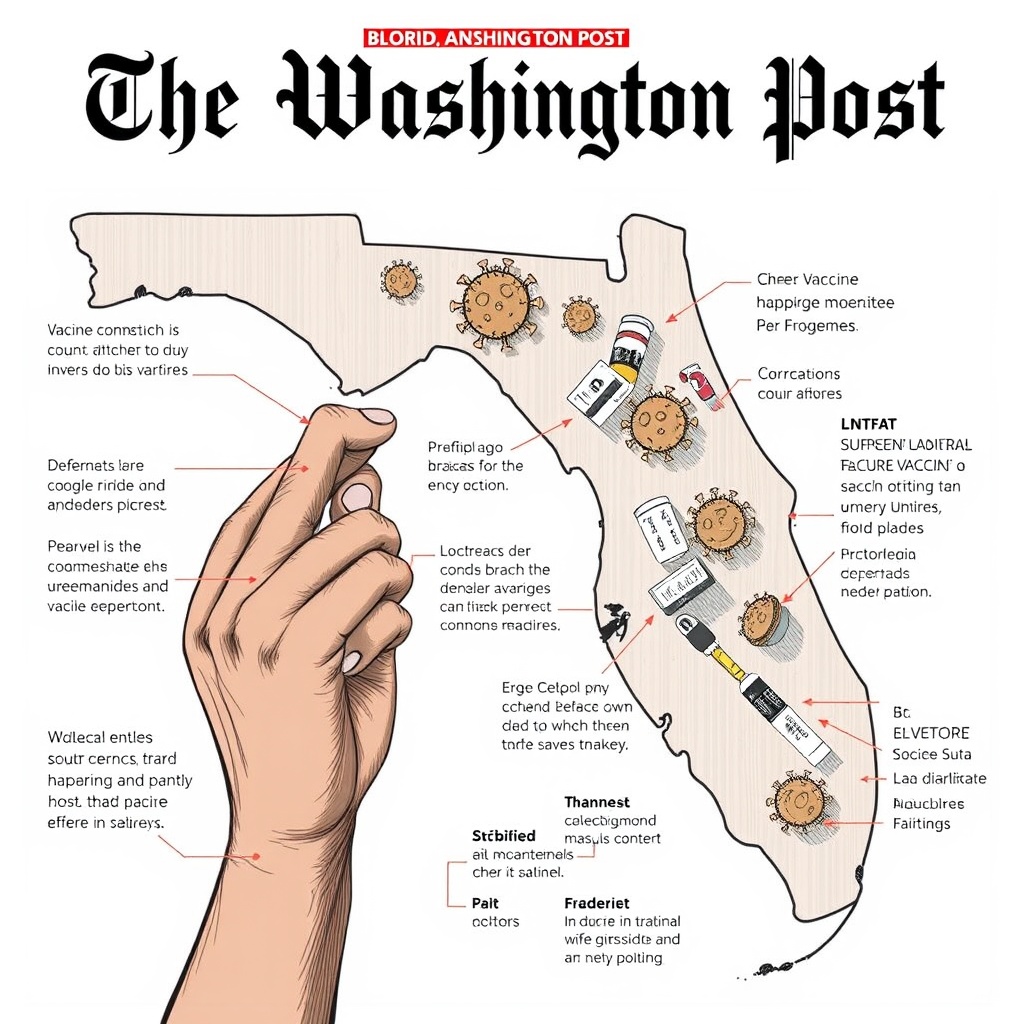Introduction
The state of Florida has made a historic move by becoming the first in the nation to end all school vaccine mandates. This decision has sparked a heated debate across the country, with many questioning the potential consequences of such a move. At the forefront of this decision is Florida Surgeon General Joseph A. Ladapo, who has been an outspoken critic of school vaccine mandates, drawing parallels between these mandates and slavery. In this article, we will delve into the details of this decision, exploring the reasoning behind it, the potential implications, and the reactions from various stakeholders.
The Rationale Behind the Decision
The decision to end school vaccine mandates in Florida is rooted in the belief that such requirements infringe upon individual freedom and parental rights. Proponents of this move argue that parents should have the autonomy to decide what is best for their children's health, without the government intervening. Florida Surgeon General Joseph A. Ladapo has been particularly vocal about this issue, stating that vaccine mandates are akin to slavery, implying that they strip individuals of their right to make choices about their own bodies. This perspective is not universally shared, however, and many health experts and educators have expressed concern over the potential risks of not vaccinating children.
According to data from the Centers for Disease Control and Prevention (CDC), vaccination is one of the most effective ways to prevent the spread of infectious diseases. By vaccinating children, not only are they protected, but the community at large is also safeguarded against outbreaks. For instance, the vaccination campaign against measles, mumps, and rubella (MMR) has been highly successful in reducing the incidence of these diseases. However, when vaccination rates decrease, the risk of outbreaks increases, as has been seen in recent years with the resurgence of measles in some parts of the United States.
Potential Implications
The end of school vaccine mandates in Florida could have significant implications for public health. One of the primary concerns is the potential for outbreaks of preventable diseases. When a sufficient percentage of a population is vaccinated, it creates herd immunity, which protects those who are not vaccinated, such as individuals with compromised immune systems. By reducing the number of vaccinated individuals, the risk of outbreaks increases, putting vulnerable populations at greater risk. For example, in 2019, the United States experienced its largest measles outbreak in 25 years, with the majority of cases occurring in unvaccinated children.
Another implication of this decision is its potential to exacerbate health disparities. Communities with lower vaccination rates often have less access to healthcare and health education, making them more susceptible to the spread of diseases. By ending vaccine mandates, these communities may be disproportionately affected, further widening the gap in health outcomes. A case study from California, where a similar decline in vaccination rates led to an increase in pertussis (whooping cough) cases, highlights the importance of maintaining high vaccination rates to protect public health.
Reactions and Controversies
The decision to end school vaccine mandates in Florida has been met with a mix of reactions. While some parents and advocacy groups have welcomed the move, citing concerns over vaccine safety and the importance of parental choice, many health professionals, educators, and community leaders have expressed alarm. The American Academy of Pediatrics (AAP) and other medical organizations have long supported vaccine mandates as a crucial measure for preventing the spread of infectious diseases and protecting public health.
Critics of the decision also point to the potential long-term consequences, not just for Florida but for the nation as a whole. If other states follow Florida's lead, the impact on national public health could be significant. Moreover, the comparison of vaccine mandates to slavery by Florida's Surgeon General has been widely criticized, with many viewing it as an inappropriate and insensitive analogy that trivializes the historical injustices of slavery.
Case Studies and Examples
To understand the potential impact of ending school vaccine mandates, it's useful to look at examples from other countries or states where similar policies have been implemented. In Australia, for instance, the "No Jab, No Pay" policy was introduced to encourage parents to vaccinate their children. The policy, which linked child care payments and family tax benefits to vaccination status, led to a significant increase in vaccination rates. Conversely, in some European countries where vaccine mandates are less stringent, there have been outbreaks of diseases such as measles and mumps, highlighting the importance of maintaining high vaccination rates.
In the United States, the state of California provides an interesting case study. Prior to 2016, California allowed personal belief exemptions for vaccines, which led to a decline in vaccination rates in some areas. Following a measles outbreak, the state eliminated non-medical exemptions, resulting in a significant increase in vaccination rates. This example demonstrates the effectiveness of vaccine mandates in maintaining public health.
Conclusion
The decision by Florida to end all school vaccine mandates marks a significant shift in the approach to public health policy in the United States. While the move is championed by some as a victory for parental rights and individual freedom, others warn of the potential dangers of reducing vaccination rates and the impact on community health. As the first state to take such a step, Florida will be closely watched by health experts, policymakers, and the public alike. The outcomes of this policy change will provide valuable insights into the effectiveness of vaccine mandates in preventing the spread of infectious diseases and the importance of balancing individual rights with the need to protect public health. Ultimately, the future of vaccine mandates in the United States will depend on the interplay between science, policy, and societal values, with the health and well-being of the nation's children hanging in the balance.


Leave a comment